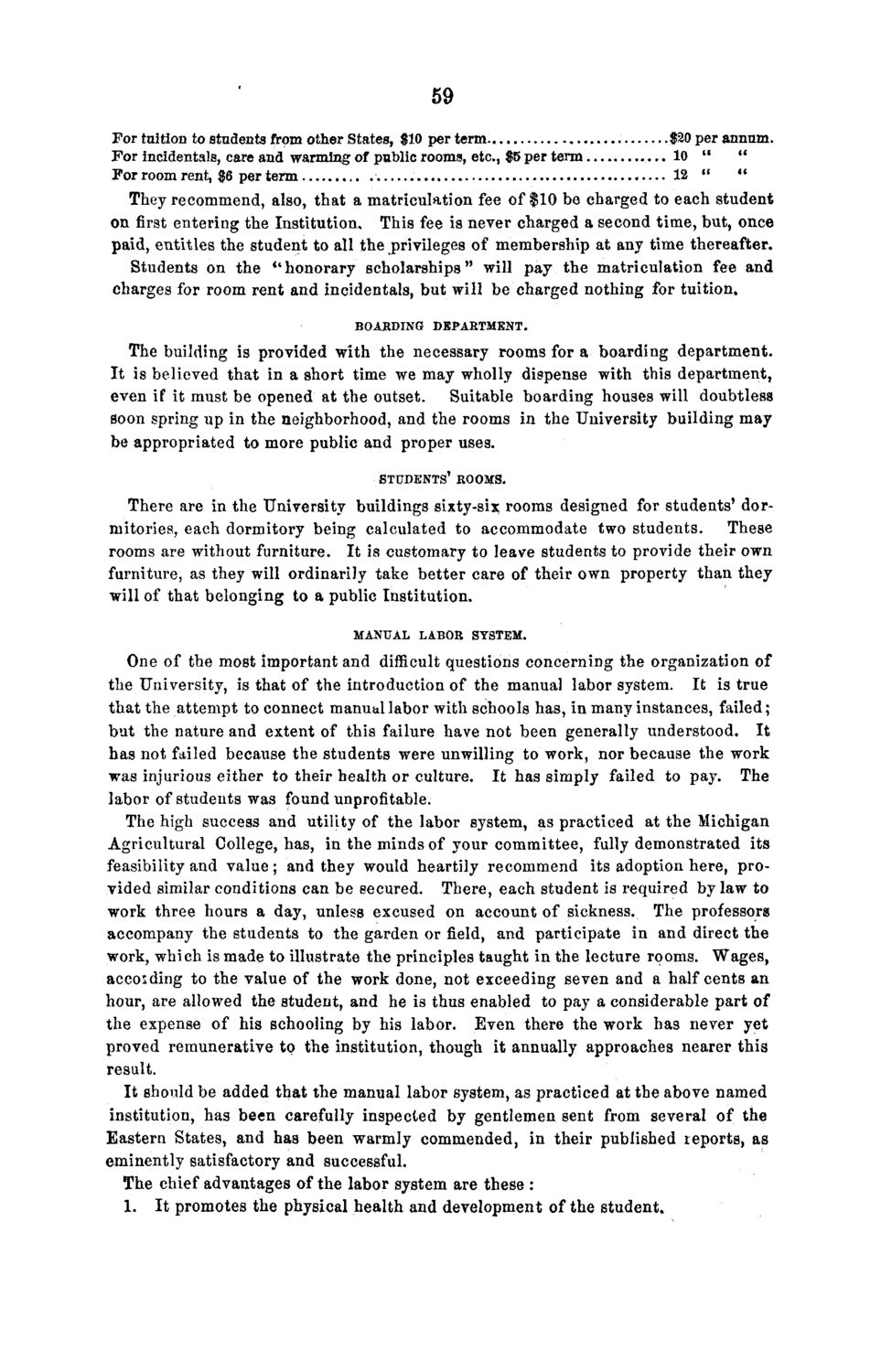| |
| |
Caption: Board of Trustees Minutes - 1868
This is a reduced-resolution page image for fast online browsing.

EXTRACTED TEXT FROM PAGE:
59 For tuition to students from other States, $10 per term $20 per annum. For incidentals, care and warming of public rooms, etc., $5 per term.. 10 " " For room rent, $6 per term 12 " " They recommend, also, that a matriculation fee of $10 be charged to each student on first entering the Institution. This fee is never charged a second time, but, once paid, entitles the student to all the privileges of membership at any time thereafter. Students on the *4 honorary scholarships" will pay the matriculation fee and charges for room rent and incidentals, but will be charged nothing for tuition. BOARDING DEPARTMENT. The building is provided with the necessary rooms for a boarding department. It is believed that in a short time we may wholly dispense with this department, even if it must be opened at the outset. Suitable boarding houses will doubtless soon spring up in the neighborhood, and the rooms in the University building may be appropriated to more public and proper uses. STUDENTS' ROOMS. There are in the University buildings sixty-six rooms designed for students' dormitories, each dormitory being calculated to accommodate two students. These rooms are without furniture. It is customary to leave students to provide their own furniture, as they will ordinarily take better care of their own property than they will of that belonging to a public Institution. MANUAL LABOR SYSTEM. One of the most important and difficult questions concerning the organization of the University, is that of the introduction of the manual labor system. It is true that the attempt to connect manual labor with schools has, in many instances, failed; but the nature and extent of this failure have not been generally understood. It has not failed because the students were unwilling to work, nor because the work was injurious either to their health or culture. It has simply failed to pay. The labor of students was found unprofitable. The high success and utility of the labor system, as practiced at the Michigan Agricultural College, has, in the minds of your committee, fully demonstrated its feasibility and value; and they would heartily recommend its adoption here, provided similar conditions can be secured. There, each student is required by law to work three hours a day, unless excused on account of sickness. The professors accompany the students to the garden or field, and participate in and direct tbe work, which is made to illustrate the principles taught in the lecture rooms. Wages, according to the value of the work done, not exceeding seven and a half cents an hour, are allowed the student, and he is thus enabled to pay a considerable part of the expense of his schooling by his labor. Even there the work has never yet proved remunerative to the institution, though it annually approaches nearer this result. It should be added that the manual labor system, as practiced at the above named institution, has been carefully inspected by gentlemen sent from several of the Eastern States, and has been warmly commended, in their published reports, as eminently satisfactory and successful. The chief advantages of the labor system are these : 1. It promotes the physical health and development of the student.
| |